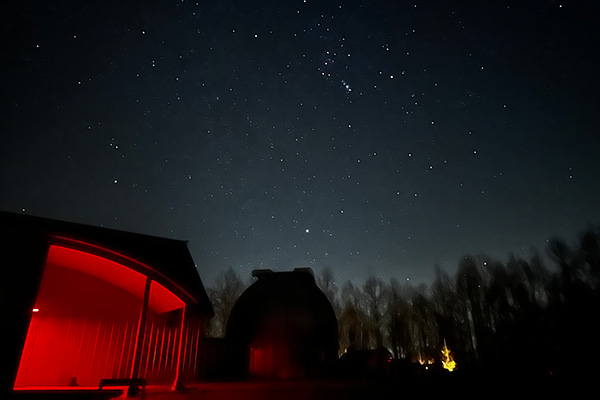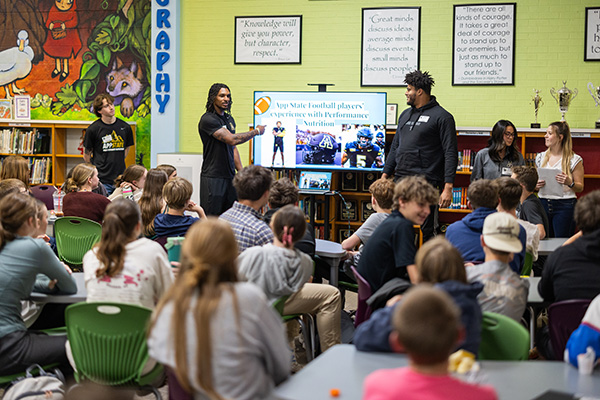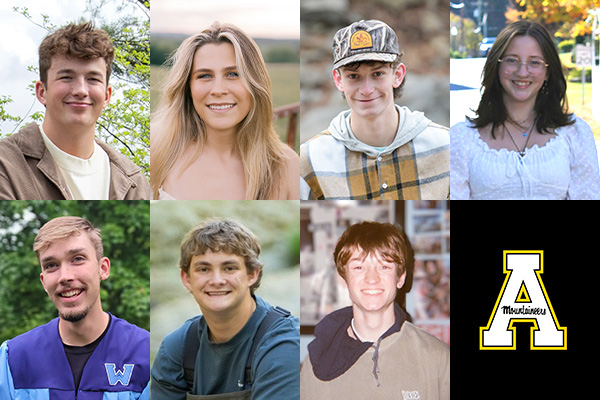In Liz Pope’s debut as the new host of AppX, she and her guests, Ryan Hellenbrand and Sarah Kate Murphy explain what the Honors College is and what it is not. How do you get in? What's a day in the life of an Honors College student consist of and more on the latest AppX.
Transcript
Liz Pope: Hey everyone! I’m Liz Pope and you’re listening to AppX. I am your brand new host, I’ll be talking about a lot of different things. Hopefully if you’re looking at Appalachian, or just interested, I’ll be your girl. I am not the first Pope to host the AppX podcast. My older sister Laurie is a veteran, and now it’s my time. Today’s topic is the Honors College and I’m here today with Ryan Hellenbrand and Sarah Kate Murphy. The point of this podcast today is to kind of get a feel for what the Honors College is like and what it’s like to be a part of it. So to start out, I’ll just have you guys introduce yourselves.
Sarah Kate Murphy: Okay, my name is Sarah Kate Murphy. I am a senior Public Relations and French double major with a minor in Computer Information systems. Over the past few years, I’ve gotten involved in a couple different things on and off campus. I was a leader for YoungLife, which is a Christian ministry for two years. I used to be in AIESEC, which is an international exchange organization and this year I’ve spent a lot of time as a senator for SGA working in different parts of the university to enact change on different policies.
Ryan Hellenbrand: Hi, my name is Ryan Hellenbrand. I am also a senior double major in Sustainable Development and Global Studies with a minor in German. As far as extracurriculars here, I was a member of International Appalachian, which was a club that helped take care of international students and try and get more App students to go abroad. Aside from that I do a lot of school work and personal research for German and Forestries, which is actually my main focus in Sustainable Development.
LP: Awesome! So I’m Liz, I’m an Advertising major, I am a Media Studies minor. I’m involved with SpoonUniversity, I’m a writer and a marketer there. I’m also a camp counselor in the summer, so I really love spending time with kids, and bettering them as people, that’s one of my favorite things to do. Let’s start off by how you guys got involved in the Honors College. You both joined right out of high school.
SKM & RH: Yes.
LP: What was that process like for you?
RH: The story starts that my mother is actually a professor here in the Language, Literatures, and Cultures and teaches German. In my sophomore year of high school we actually lived in Germany for six months while she was doing research and when I came back, Watauga High School had dropped its German program. So I started taking German classes here at the University through my junior and senior year, and so when I was looking to apply for colleges I decided I’m going to go for Appalachian because I do know it, and I know some of the professors here and right off the bat, I decided I’m also going to go for the Honors College and I had the grades that I also decided to apply for the Chancellor’s Scholarship, which I received and then decided to come to App because of its involvement with the Honors College and the support that it gives.
LP: That’s awesome. Did they reach out to you? Or were you…?
RH: It went both ways.
LP: Both ways.
RH: Interested in it, and also that they were asking for me to do that.
LP: Cool! That’s awesome.
RH: The scholarship application is a part of the Honors College application, which I think is a great way to do that.
SKM: Yeah, that’s a good idea.
RH: Because you get those students interested in the Honors College, but you also make them aware that there are funding opportunities on multiple levels.
LP: Yeah, that’s great. That’s a great way to pull people from different backgrounds anywhere. That’s awesome. Sarah Kate how about you?
SKM: So I’m from Charlotte and I went to a really big public high school. It was extremely competitive, I took 8 APs in high school; it was really difficult. But, when the time came to apply for college, I had a lot of friends who were going to universities, like I had a lot of friends who went to USC, Chapel Hill, Clemson, etc. and a lot of my friends especially going to the South Carolina schools, were going to their Honors Colleges and I just thought, you know, why not? I really want to go to Appalachian, and so I applied to the Honors College. I think it came in—I think I got a separate email to apply before the application for Appalachian. So, I applied, and I got accepted and one of the things that really appealed to me was. I don’t know, I kindof like that the Honors College, you feel really like the sense of community before you come to Appalachian as a freshman and that’s what really appealed to me, like that there’s the Honors dorm, and you get to move in early—it’s a few days early, but it really does make a difference—so that was one of the biggest things that appealed to me and I got accepted so I was like, you know, why not?
LP: Yeah, of course! So my Honors College story really is, out of high school, I wasn’t the best student, I didn’t really work as hard as I wanted to, I was in a very small private school and it was honestly hard for me to be motivated. I got into App, and I was so excited, came to App, I loved it. I had a great first semester, I was in a really good place, great environment, I met great people, and I came out with really great grades. I checked my email one morning and it said “Hey! Would you like to apply to the Honors College?” and I hadn’t really thought about it until I got that email and I said, “You know what? I’m going to go for it.” And I applied, and I got in. I started my honors classes the next semester. My first was with Sarah Kate, actually, in Dr. Welsh’s class COM 1200. Probably one of the hardest classes ever that I have taken. The readings were hard, you had to do a lot of thinking in depth, and it was great though. I loved it and here I am today, still in the Honors College…haven’t screwed up yet, so we’re doing good (laughs) So the Honors College is in a separate building in East Side of campus called Appalachian Hall
RH: It’s this quad are that is composed of Appalachian Hall, which houses the offices, and then Cone and Summit which are the two dorms for Honors students.
SKM: It’s a nice little, it’s a nice little area. I mean now as a senior I haven’t lived on campus in two years, I haven’t had a class there in a while, but I love going there still. It’s like a little home-away-from-home.
LP: Okay let’s talk about that more, dorm life. What was that like? All Honors kids.
SKM: Yeah, it’s really interesting because you move in as a freshman about, I think it’s four of five days before the other freshmen move in, and they do a retreat for the freshmen. You go to Camp Broadstone which is Appalachian’s property out 105 and it’s really interesting because you do a lot of team building activities, you get to meet people from your dorm, whereas regular freshmen just have AppalCorps over the first weekend of school. So, it was really cool because you automatically got to meet people. The dorm size of the Honors dorm is pretty small. I mean, not super small, but in terms of how many collective freshmen there are, it’s pretty small. So, it was cool because you got to meet a lot of people and then it was funny because I noticed—I already knew people—and so by the time that the other freshmen were moving in I would be walking around with the people I knew being like, “These people—they’re so new!” which of course we had only been there for a few days. But like I said before, the sense of community is really present from the get-go.
LP: Do you guys still keep up with the people you lived with?
SKM: Yes.
RH: Definitely. I think one of the things that I really enjoyed about Cone was that not only were the floors co-ed, but they had one single kind of lobby area and that meant that everyone was hanging out all at the same time and my floor especially got to know each other really well and we still stayed friends and a lot of us ended up on the same floor in Summit the following year and it’s still a very core group of friends that go out very frequently with one another.
SKM: Yeah, I would agree.
LP: I know that happens on many different levels, but I feel like there must be a certain bond because you’re sharing classes with these same people as well, so you get to see them in dorm life and class.
RH: I think that part of it is that you’re living with people who don’t only share very particular interests. There’s a very broad range of what everyone knows, can do, is interested in, and in the Honors College that just fits a lot better than I think it might in other places where you don’t have such a wide variety of interests at the same time.
LP: Yeah, and you’re all bonded by the one idea that you are here for school above all else.
SKM: Yeah, and I would definitely say the environment is really conducive to, like Ryan was saying, the broad range of interests. You know, you’re going to class with these people when you’re a freshman, and typically you take your freshman seminar the first semester of college so you get there, you have your orientation, you make your friends, and what’s really interesting to me is I specifically remember, I think maybe it’s just because you met everybody from the get go and there’s a sense, a broader sense of community and being together for the same purpose even though everybody’s interested in different things. There’s a sense of trust that develops and it was really interesting because when I had other friends that lived in other dorms, they would tell me, “Oh, every time I leave I lock my door. I kind of know the people on my hall.” I did not experience that at all. I would never lock my door, I would feel totally comfortable. Just because I felt—even if I wasn’t close friends with everybody on my hall, that there was still that sense of community, the sense of trust, the sense of everybody supporting each other, and being there for the same purpose, which was really nice, especially when you’re a freshman and you are in a completely new stage of life.
LP: So, let’s get to the nitty gritty. What is the Honors College? Why would someone want to do it?
RH: What makes the Honors College stand out is the framework of seminars that go from your freshman year through your junior year and in your senior year you write your Honors Thesis, which is a large research project. And so you take one seminar each year, that means they get, obviously, increasingly difficult.
LP: They’re cool! They’re cool topics.
SKM: Yeah, they’re really interesting!
RH: They’re taught by professors who really know what they’re talking about and know how to combine those different pieces in the class with other topics that these students will be having in a wide variety of their own experiences because it’s truly interdisciplinary in that way because you have students from all different majors sitting together in these seminars and they all bring very different experiences and viewpoints on the subject matter to the classroom.
LP: That’s so true, and you get to interact and meet people that you normally wouldn’t. Something about the seminars is so calming in a way, being surrounded by strictly honors students, I know you guys got that experience in the dorms where I didn’t since I joined second semester my freshman year. I like being able to know I can throw ideas out there and not be judged because it’s just a great environment, and everyone is there for the same reasons and the professors and amazing. Some of my favorite professors I have ever had have been my seminar professors, and you get to learn things that you wouldn’t normally.
SKM: And I would definitely say too, the topics are really, like Ryan was saying, very interdisciplinary and the topics that, you know, are offered in other freshman seminar courses are cool, but what I really like about the seminars is that they are continuous. They either build on top of each other or you end up taking a class that you would have never taken otherwise. I actually took kind of the same seminar two years in a row with Ryan’s mom, who is one of my favorite professors of all time, she’s amazing. But, it was on King Arthur, which I'm a huge Medieval history nerd, so that was like, a really cool fulfillment of things I never ever thought I was going to study in school.
LP: That’s so cool!
SKM: And, yeah! So it was just super exciting because I took the freshman level one, and then they actually offered a 3000 level one my sophomore year, so even though I wasn’t a junior I was able to take it and build off of the things I had learned in the previous year which was super exciting.
RH: And that was the junior level one that actually takes a spring break trip to England to go visit all of these physical sights.
SKM: And it was—I was dying inside it was so cool!
LP: So cool! So we can talk about that a little bit. Studying abroad in the Honors College, it’s a lot easier, not only is it easier, it’s required. That can either come in the form of an ASE trip, which is Alternative Service Experience, studying abroad for a semester, it comes in all shapes and sizes and through the Honors College you are required to do some form of this. So, you both have studied abroad in some capacity. Ryan, do you want to talk a little bit about your time in Germany?
RH: So coming in with the German credit and the German language ability that I did, I was—through the Honors College—able to go abroad in my second semester as a freshman. And I studied at the University of Bamberg in Germany where I fulfilled a lot of the requirements for my German minor looking at German language, German language history and literature. And then, my junior year I actually spent the entire year abroad, both semesters at the University of Freiburg which is in the southwest and that’s where I really got into this forestry for my sustainable development and I was also able to take out a lot of my required courses from the coursework I was doing in German. So that’s another way that that study abroad actually is really good, because you get not only your requirements out of the way, but you get them in a much broader context and you understand how this type of subject matter actually works in different parts of the world as well.
LP: And it’s a good requirement. There could be worse things than studying abroad.
(laughs)
SKM: And I definitely think the commitment to studying abroad and having international experience shows that the Honors College is trying to develop students with a global mindset, which is really important obviously in our increasingly globalized world. My international experience, I went abroad to England with Ryan’s mom and my honors seminar my sophomore year and it was really cool because I got to see not only another country—one that I had never been to before—but also we got to see all of the different places we had been studying and it was really cool to—it’s kind of cliché but—to see everything that we had been learning about come to life. But it was really cool because I actually—the encouragement to go abroad hasn’t stopped there. My advisor really encouraged me to do an internship the summer after my sophomore year and I got one in France to go with my French major and I have now done two there and will go back again this summer to work. So, it just is really cool because the Honors College is really supportive of students who want to go abroad and have an international interest, not only financially, but just in terms of supporting you and telling you “Yes, you can do this. Here are ways you can get yourself from Point A to Point B.” And for people who have never gone abroad before, it can be a little daunting to say, “Alright, how do I just get myself there?” And the Honors College advisors, especially mine, really, really helped me in terms of motivating me and showing me ways that I could go abroad. And like I said, I’ve worked there for two going on three summers, so it’s really—it’s cool.
LP: —an amazing thing. Kindof back tracking a little…what do you guys think the benefit of being in the Honors College is as far as your life goals are concerned?
SKM: When you write your thesis, if you want to go to grad school, that’s one of the biggest things that’s touted by the Honors College, it’s something that’s really important. But, I think something that The Honors College has sparked in me is the life-long love of learning, I—
LP: Totally agree.
SKM: Like, I get excited about my research projects, I’m excited about my thesis, whenever I am able to find a new source, or something mundane as that. It’s also just this desire and love for learning that gets created and that everybody else encourages you to aspire to is for me personally one of the biggest benefits, aside from the benefits of early registration, and your housing, that are some of the things that you get during your undergrad experience, but afterwards and then throughout your whole life whether that be grad school or in your career, the mindset that it creates I think really sets the Honors College apart from just the regular undergrad experience at Appalachian.
RH: In addition to everything else, you will have that tag on your transcript that says, this was an honors course, I completed honors level coursework, I completed University Honors and employers will see that and say, “Okay this is a student who not only gets things done, enjoys doing it, and can also be really creative and inventive and come up with new ways of doing things.”
SKM: And who has maintained that throughout their college career, it shows I think especially because there is a GPA requirement so, it’s 3.45, you have to graduate with at least a 3.45, so employers will see that you didn’t just come in and then get really excited and kind of burn out. You maintained that academic excellence, but also your interests as well.
LP: And I think the fact that you can do that definitely attests to your commitment as a student, and as a future employee. Alright, so some misconceptions about the Honors College. Is it more expensive?
RH & SKM: No.
RH: There’s no cost difference.
LP: Are we all nerds?
RH & SKM: No.
SKM: I mean.
LP: I mean…kind of.
SKM: It’s like fun nerdy though!
LP: We’re not like, nerdy-nerdy. We’re cool nerds!
SKM: We’re not like hiding in the basement typing away on a computer in the dark.
LP: We’re normal people we swear!
SKM: You’re a normal college student just like anybody else, you just happen—I think the biggest thing that maybe would create a divide in someone’s mind between the honors students and non-honors is the fact that they, especially freshman year, you do live in a dorm with non-honors people, but a lot of people don’t know that in Cone there are several floors that aren’t honors so you definitely have the opportunity to meet people whether in the dorm, or in your classes, or through your extra curricular activities. And it’s really interesting because I’ve found, especially my freshman and sophomore year, living in an honors dorm that you know, it wasn’t that there were any less opportunities to miss out, but at the same time, if I needed to stay in to study for a test or if I needed to put the pedal to the metal and focus on school, people didn’t make me feel bad for it. Which I know is something people in other dorms have experienced.
LP: Definitely. That was—yup, I was there.
SKM: It’s like the best of both worlds.
LP: Does it take up all of our time?
LP & SKM: No.
RH: It depends on how you want to look at it.
(laughs)
RH: Because if you think of it as something bad taking up your time, then no it definitely doesn’t. If it’s something that absorbs all of your time because you’re really excited about doing it and being involved with it then yes.
LP: Then it’s not a waste in that way..
RH: Exactly.
SKM: But, I think you have just as much control over the amount of time you spend on your honors classes versus your other classes as a normal student does. So there’s not any real, you know, extra curricular required thing you have to do that would take up more of your free time.
LP: No, definitely not. True or false, it is like an extra semester essentially?
RH & SKM: Mmmmm….
RH: I wouldn’t say it’s an extra semester, there’s a lot of overlap and the idea behind some of those major honors courses is that you’re going to be taking these courses anyway, so take them at an honors level which means that you’re going further in depth with the material, you’re doing a bit more work, but you’re also putting in the the effort to get more out of it.
SKM: Yeah, and as far as the major courses go, for example, all of my Public Relations courses, especially the higher level ones, last semester I took Communication Research Methods which everybody in the department has to take, and because a lot of people in the department—they either do Departmental Honors or University Honors—I’m doing both so it’s nice because—for example, in my Comm Research Methods class, my professor allowed me to do every single project in the class as base research for my Honors Thesis. So, it’s really cool because not only do you get to do your typical major classes, but once you really start narrowing in the focus of your thesis, or just the things that you’re interested in, your research topics, etcetera, a lot of professors, even if they’re not a specific Honors College professor, are willing to accommodate that, and they want to help you go further into that.
LP: I don’t know if you guys have experienced this in your major classes. So there will be a big section, normal class, and then there’s a few honors students within, but it’s taught as if it’s a normal class with a professor, you just meet outside with them—Sarah Kate and I had a class like that—and sometimes the professor will make a comment like “Okay…honors students stay after class” and then people kind of like look around like…
All: “Who are they?!”
LP: “They’re among us!” So it’s cool that you still get to experience big classes, and then also smaller classes when you’re in seminars and all of that cool stuff. So, yes it is extra courses, yes you do have to do extra seminars, but the overlap is crucial to being able graduate on time and it is doable. How do y’all feel about the stress level? How do you think the Honors College is as far as adding stress to your life?
RH: I think in part because those seminars and the extra course work are actually so exciting, because I think what really makes the Honors College stand apart, student-wise, is that the students that come into it are from the get-go very passionate about what they’re learning.
SKM & LP: Yes, definitely.
RH: And they’re very passionate about being life-long learners in that way that, every little piece fits together somehow and they’ll make it work. And so I think for the students who really feel comfortable and feel prepared, you know, it’s not as stressful, and for those students who don’t, the Honors College actually offers a lot of support to get you to that place where you can be like, “Alright, I’m going to go tackle this test. Or I’ve got a 10 page research paper due at the end of the week, I got this because I’ve already done the work leading up to it.”
LP: You’re able to take on this load because you’re there.
SKM: It builds a really good foundation. I would say, I did not experience a lot of stress, and one of the things they recommend your freshman year is to not take a lot of hours your first semester, so I took twelve. And I, unfortunately—well I guess not unfortunately—but I will graduate in December, so I’m graduating a little late, but that’s because I have two majors and a minor.
LP: Not a bad thing.
SKM: It’s not because of the Honors College. I never have felt stressed because of my honors course load, because like Ryan was saying, they build a really good foundation of making you excited about learning and excited about the things that you are going to do research on or write about or whatever it is. There’s an environment of, it’s not stress, it’s excitement, it’s like making new knowledge, if that makes sense. It’s really cool.
LP: Yeah! Sweet! Misconceptions…is there anymore y’all can think of?
SKM: I think we could talk about a little bit about the thesis because—
LP: Oh that’s good!
RH: That’s a good one!
SKM: I have talked to people who, when they hear all of these things about the Honors College, maybe they’re not in the Honors College or they’re an incoming freshman, and then they hear the word thesis and then they freak out because they think of a hundred page document.
RH: Like you’re writing a book or something.
LP: They do bind them…
RH: They do, they do.
SKM: Yeah, they do bind them. But, when I was a freshman something that was really interesting to me, because I was kind of nervous about it even though I knew it was pretty far off, was they explained in your orientation meeting that a thesis is just a contribution to knowledge in a field. And that is something that is pretty reassuring, I mean most people are probably going to still write a paper that’s pretty long, but the thing that I really like about it is that it is a culmination of everything you’re worked for. It’s not just, “Oh it’s this long paper I have to write.” By your junior year, or first semester senior year, you really know what you want to write about and you get to choose a topic that you’re passionate about, which I think is the most important thing. It’s not just some paper that you have to write because they say you need to write it. It’s a topic that you get to choose, something that you get to focus on. So, I’m really excited for my thesis personally once it all comes together and like I said a little while ago, a couple of my classes, my professors have allowed me to focus all of my extra curricular honors projects on my thesis, so I already have a lot of base material to work with.
LP: What is your thesis?
SKM: Mine is a content analysis of French mass media to determine if their language usage has a xenophobic bias and if that affects the political and social undercurrents of the country.
RH: That’s great!
LP: See that’s great because your abroad experience ties perfectly with that!
RH: Exactly.
SKM: Yeah! And I’ve gotten to interview people there for my thesis so it’s been great.
LP: That’s amazing.
SKM: Ryan, what’s yours?
RH: So mine is called Imagining Stewardship: Roots of a Poetic Ecopolitics.
SKM: That is so cool!
RH: So what I’m looking at is the German word for economy and this idea that if you look at the etymology of the word, the roots, go back to what it used to mean and how things have changed, and figure out where we decided certain things mean particular things.
SKM: Ooh! That’s really cool.
RH: Can you go back and basically redraw the line, can you re-trace it, and can you actually understand the word wirtschaft, which is the German word for economy, can you you really understand that as actually being something that means something more like stewardship and taking care of the the Earth and being able to give back to it?
SKM: Wow.
LP: That is awesome.
SKM: That’s like a perfect marriage.
LP: I know! I was about to say.
RH: Exactly! And then the poetic part is that this conception of this older, more nuanced, conception of wirtschaft actually emerges from the poetry at the beginnings of German identity, so I’m not only looking at the etymology of a word, but I’m also taking real authors and their works to see how they contributed to a different understanding of that word.
LP: That’s so great.
SKM: Wow.
LP: I’m just a junior, so that gives me hope that I’ll find the perfect topic to write.
RH: I think you will! Because that’s the great thing about the thesis being a project that’s completely your own.
LP: You want to do it!
RH: It grows out of everything you’ve done for the past three, four years.
LP: That makes it less scary.
RH: Exactly! Everything leads up to that point, and so all of the research that you’ve done, everything that you’ve thought for the past three years about anything comes out in your thesis.
LP: It’s so cool. Y’all are so passionate about your topics, I can like feel it.
RH: Like Sarah Kate said, I’ll be just looking something up and I’ll find just some tangent to my research and it still makes me freak out.
SKM: Yeah! And it works! You can still put it in if you want.
RH: You can find a way to fit it in.
SKM: Like I, for my thesis I mean, the reason I chose to be a French major was I was like, “I like French so I’ll do it.” But, you know, all I had to do for my thesis—my advisor Dr. Pope, who is my advisor for my Public Relations major who actually taught the honors seminar that Liz and I took together called MyMedia.MyWorld…it was mind blowing…
LP: Amazing class.
SKM: But, she was the one who told me, you know, “All you have to do is…you like French, you like communication. Find something that mixes them both, and that you’re interested in.” And from there, that’s how my topic shaped itself, and obviously it was shaped by my experiences in France, the political climate there is really shifting a lot, and that was one of the biggest things that I wanted to focus on was, how do I make something that I’m interested—which is like globalization and contemporary politics and that sort of thing—how do I make that come together into something that I am interested in and that other people are going to want to read if they are nerds and like French politics and linguistics and all that sort of thing?
LP: That’s awesome. So secret pluses of the Honors College that some people might not know…we get early registration after seniors, which is really nice.
SKM: That is a BIG one.
RH: Yeah.
LP: It’s huge, you always get the classes you want, it’s very convenient.
SKM: Yeah, I’ve never had to stress about like, “Oh my gosh I need to text my friend and then ask if they can hold this class for me!” Never had to do that.
LP: You receive those texts instead.
SKM: Yes.
RH: Yeah!
LP: The secret library!
SKM: Oh yeah! I love the library.
RH: The library’s great.
LP: Um, advisors?
SKM: If you’re in the Honors College, you get a special advisor who only advises honors students, which is really nice because a lot of advisors typically have like, 300 to 400 students depending on your department, so it’s really nice that the honors advisors typically have, what, 20 to 30 maybe students? And they are really attentive to your needs and making sure that you are on track to graduate, that you’re not too stressed.
LP: I think that’s one of the best perks is that you have faculty who are there for you, and want to see you great things and see you do well. So, seminars! Favorite seminars that you’ve taken. So we’re required to take one freshman year, sophomore year, and then junior or senior year I believe?
SKM: Yeah.
LP: And they’re at different levels, I’m sure you guys have a favorite, if you want to talk about that a little bit.
RH: So my favorite honors seminar was one I took, it was a 3000 level seminar that I took as a sophomore in the fall. It was called Inventing Languages with Dr. Donna Lillian of the English department. And so the whole class was structured around building a language, and you know, coming up with a culture that would actually use this language, how do phonetics work, how can you put letters and sounds together, and making a script to go with it. And then the final presentation was everyone had to make something with this language.
SKM: Wow.
RH: And so my final product for that class was to basically make an origin myth for this culture that would use the language and talk about how they got to where they were in their own words.
LP: That’s awesome!
SKM: That is so cool!
LP: That is so cool! That’s something you would never be able to do otherwise.
RH: No.
SKM: I would say I really loved the seminar that I mentioned earlier that Liz and I took together, MyMedia.MyWorld, but my favorite was the two Arthurian Legends seminars that I took with Dr. Hellenbrand.
LP: Rightfully.
SKM: Yes, just because like I said earlier, I love the subject and I actually didn’t know that you could,—I say both of them just because they built one off of the other, just at the 3000 level we read more historical texts instead of novels like at the 1000 level—but the trip to England was just so cool, and the learning environment was awesome, because everybody that was there was super interested in it and Dr. Hellenbrand made the class really interesting, and you could tell that she was really passionate about it and that transferred over to the students attitudes as well.
LP: Yeah, that’s so cool and then you got to continue it, was the best part. It didn’t end.
SKM: Yeah, it’s great. I saw she offered it and I emailed her and I said, “Can I take this class?” and she said yes and I said, “thank you!”
LP: Probably my favorite, I’m in one right now, I really just started it this semester. We’ve met like three times but I am obsessed with the class.
SKM: What is it?
LP: It’s called Mindfull and Culturefull with Dr. McDowell and we’re doing a Service Learning Experience as a seminar, so you get to work with an organization and do, ethnographic research with them and do interviews.
RH: That’s really cool.
LP: I love it. We’re reading great books. And we do meditation halfway through class, so it’s a two and a half hour class on Thursdays, which sounds brutal, but halfway through we stop, we meditate, we turn off the lights, we relax, and it is the best thing in the world.
SKM: Wow, that sounds awesome.
LP: It’s very centering, so I really enjoyed that. So if you guys could give a shoutout to one person who made your Honors College experience what it is…
RH: I would say my thesis advisor Dr. Michael Behrent from History. I took a class with him my sophomore year called The Western Intellectual Tradition, where we kind of traced the history of philosophy going back 18th century French, so Rousseau and Voltaire and then up through to more contemporary thinkers like Michel Foucault and those kinds of folks and so he’s also my first reader on my thesis because of his in depth knowledge of 19th and 18th century German philosophy and intellectual thought.
SKM: I would say mine is Janice Pope, who taught Liz and I’s seminar that I mentioned earlier. She’s also my advisor for my Public Relations major as well. But, it’s nice because she knows the Honors College really well and has taught a lot of honors seminars and courses and so she’s been not only really helpful in kind of determining my path that I need to get through college with honors and my regular classes, but she is just an amazing woman, she’s so smart, so experienced, and she’s really kind. She’s one of the best professors I’ve ever had. I love spending time with her and she has advised me on school and life and what I am going to do with my career and my personal life as well, so she’s not just an academic mentor but a personal one as well, so I really admire her.
LP: I have to second that. She brings such great energy to class, and I always know it’s going to be a great day when you have class with Janice Pope. So this person will not realize I am talking about them on this podcast, but Scott Welsh, the person that Sarah Kate and I had for our—
SKM: He is outstanding.
LP: He is probably one of the best professors I have ever had the pleasure of having as a professor. He made me learn how to look at writing in a completely different way, in a way that I have never been challenged to do through high school through my freshman year, and if I hadn’t had him for my honors section teacher, I would not be able to do the work that I have to do today.
SKM: I can second that.
LP: So, I really appreciate him. Maybe he’ll hear this, I don’t know. But, thank you Dr. Welsh. So, if you guys had any advice for an incoming freshman thinking about applying for the Honors College, what would you suggest that they do…besides apply.
RH: Just do it!
SKM: Yeah.
RH: Because if you have something that you’re passionate about, the Honors College will help you fulfill that and if you don’t know what that passion is yet, the Honors College will help you find it.
SKM: Yeah, and I also think that it is one of the best things at Appalachian—I mean, it’s definitely the thing at Appalachian that has most largely shaped my experience in a good way and one of the things that I really love about it, and will tell anyone that will listen, especially college seniors, is that it’s not just the academic benefits that make it so great. Like, Ryan and I are both seniors and I think we can both say that it was the social as well as academic aspects as well as just other little things that the Honors College offers that make your college experience really what it is. And I would definitely say that the Honors College has been foundational to me getting where I am now.
RH: Just come ready to learn. Realize that there are going to be things that will be completely new to you that will completely turn your world upside down sometimes and make you think about things completely differently and being open to that and knowing that this will all fit together to make your—you know to basically complete your college puzzle and it’ll make a really nice image when you’re done. And so making sure you come at it ready to find those pieces and put them together the way that you want them to go together.
SKM: I’m like feeling very warm and fuzzy about the Honors College right now!
RH: My warm and fuzzies! It’s like it’s almost over already?
LP: Ryan and Sarah Kate, thank you guys for joining us.
RH: Thank you guys for having us, it’s been a pleasure.
SKM: Yeah, thanks for having us, I really enjoyed this.
LP: That’s all the time we have for today. I’m Liz Pope, this is AppX. Catch ya next time. BAM.
What do you think?
Share your feedback on this story.
About the Honors College
More than 500 students are enrolled in Appalachian State University's Honors College, which serves a diverse group of high-achieving, high-potential, highly motivated students from all majors. The Honors College helps students develop independent and creative thinking and high-level research skills; promotes interdisciplinary inquiry; and nurtures cultured and caring exchanges of ideas. The college’s enhanced academic experience prepares students for success in graduate or professional school and for leadership roles in their lives, communities and careers. Learn more at https://honors.appstate.edu.
About Appalachian State University
As a premier public institution, Appalachian State University prepares students to lead purposeful lives. App State is one of 17 campuses in the University of North Carolina System, with a national reputation for innovative teaching and opening access to a high-quality, cost-effective education. The university enrolls more than 21,000 students, has a low student-to-faculty ratio and offers more than 150 undergraduate and 80 graduate majors at its Boone and Hickory campuses and through App State Online. Learn more at https://www.appstate.edu.

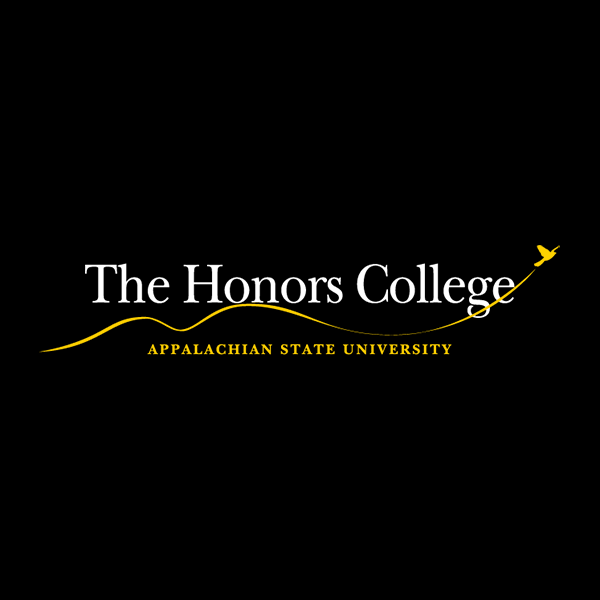

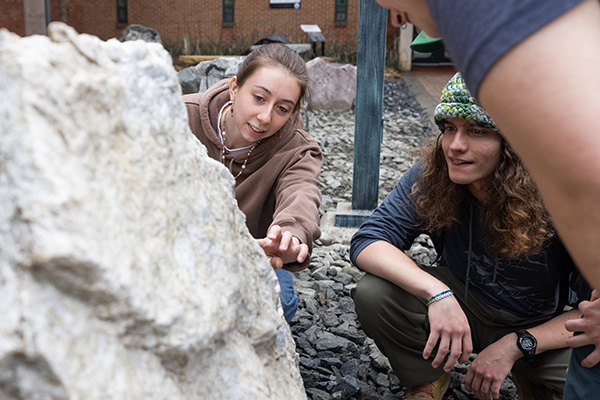
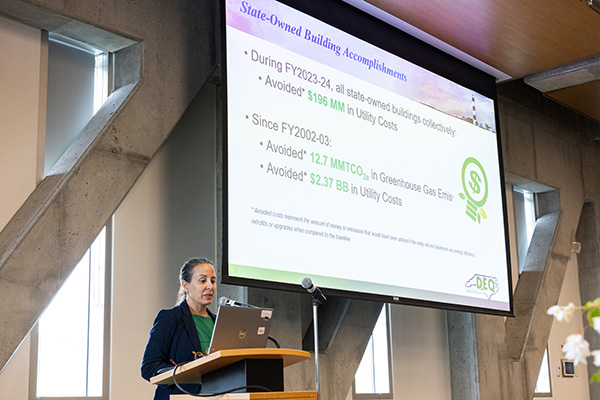

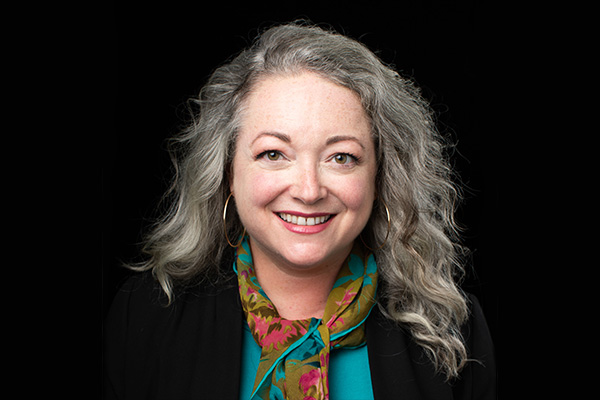

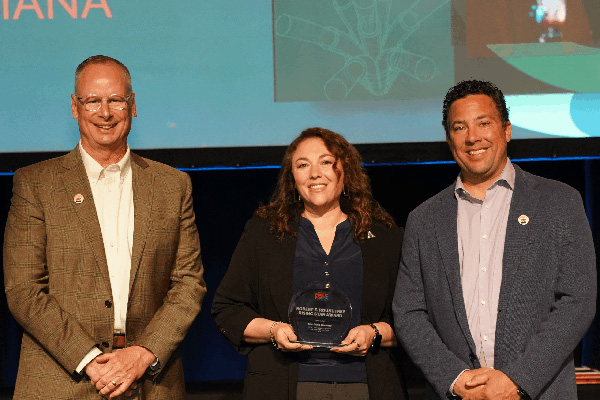
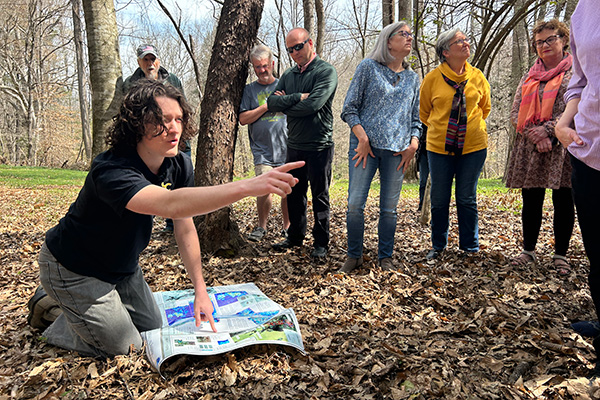
![‘Dragon prince’ dinosaur may be missing link in T. rex evolution [alumni featured]](/_images/_posts/2025/06/dragon-prince-600x400.jpg)
![Is Carb Cycling the Key to Increasing Your Endurance? [faculty featured]](/_images/_posts/2025/06/carb-cycling-600x400.jpg)
